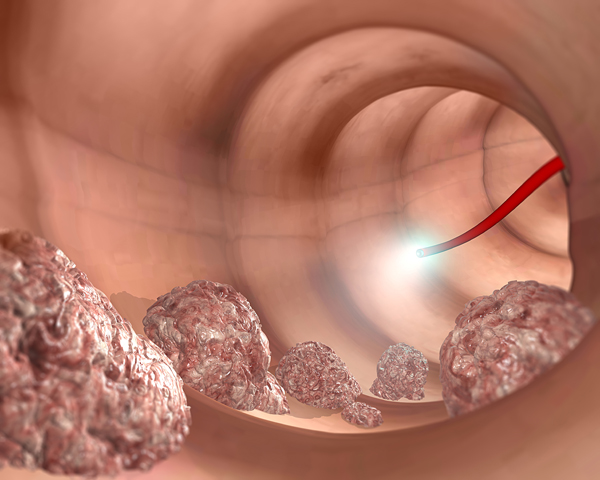According to a new study conducted by researchers at institutes around the world, bowel cancer can be organized into four distinct subtypes, according to unique biological characteristics. The new findings could allow for more personalized diagnosis and treatment of bowel cancer, and encourage the development of targeted therapies for each form of the disease.
Bowel cancer tumor data was collected by researchers at The Institute of Cancer Research (ICR), London, in conjunction with academics in Europe and the US. The collaborators amassed the largest data set on bowel cancer in the world, and used the information to classify the cancers into four distinct groups.
The researchers hope the findings lead to better identification of patients with the most dangerous form of the disease, which can be fast-growing and may require more aggressive treatment. The results of the research were funded by the ICR as well as the NIHR Biomedical Research Centre at The Royal Marsden, and the findings were published in the journal, Nature Medicine.
Both clinical and molecular data – including cell metabolism, gene activity, gene mutations, immune system activation, cancer type and metastasis – was collected from 3,443 patients with bowel cancer. The cancers were then grouped using algorithms designed to take all of the parameters into account, in an attempt to improve upon past efforts to subdivide bowel cancer.
According to the researchers, 87 percent of all bowel cancer tumors could be accurately divided into four groups. The tumors within the groups – known as consensus molecular subtypes (CMS) – shared common weaknesses which could make them vulnerable to the same targeted therapy.
Some subgroups of bowel cancer had more negative outcomes compared to others. Patients with bowel tumors classified at CMS4 had significantly lower survival rates, showed high rates of cancer metastasis, and their cancers were often diagnosed in the later stages – stage III and IV. Regardless of cancer relapse, patients with CMS2 tumors had a much higher rate of survival.
“Our study has identified four distinct types of bowel cancer, each with a definite set of genetic and biological characteristics, and some of which are more aggressive and more likely to be fatal than others,” said Dr. Anguraj Sadanandam, team leader in Precision Cancer Medicine at the ICR, and a co-leader on the study. “This could allow doctors to pick out those patients with more aggressive disease and treat them accordingly.”
“Ultimately, it could lead to development of new molecular diagnostic tests to diagnose patients by their particular type of bowel cancer, and give them the most effective treatments for that type,” said Sadanandam. “Our work is a perfect example of the team science approach that is increasingly being used to tackle the biggest research problems – with collaborators compiling data from around the world to arrive at these new disease classifications.”
“Over the last decade there has been a major change in the way we look at cancer, with an increasing understanding that tumor types such as breast cancer, prostate cancer and now bowel cancer are actually multiple different diseases,” said Professor Paul Workman, chief executive of the ICR. “Our researchers and colleagues around the world have analyzed huge amounts of data on the genomics and biology of bowel cancers in order to arrive at this new classification. The findings will allow us to understand the behaviours and weaknesses common to each type of bowel cancer, and to use that information to predict how patients are likely to respond to current treatments and to design tailored approaches to therapy.”
Sources:
- Scientists Find Four New Types of Bowel Cancer – http://www.dddmag.com/news/2015/10/scientists-find-four-new-types-bowel-cancer
- Guinney, J., Dienstmann, R., Wang, X., de Reyniès, A., Schlicker, A., Soneson, C., Marisa, L., Roepman, P., Nyamundanda, G, et al. (2015). The consensus molecular subtypes of colorectal cancer. Nat Med.












Join or login to leave a comment
JOIN LOGIN